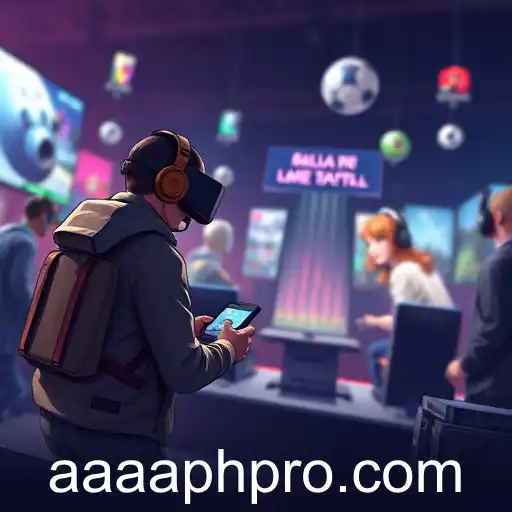Educational Games


Exploring the Benefits of Educational Games: A New Approach to Learning

In recent years, educational games have emerged as a powerful tool in the landscape of learning and development for children and adults alike. This growing trend marks a significant departure from traditional rote learning techniques, offering a more engaging, interactive, and effective means of education. With the keyword 'aaaaph' signifying fun and knowledge in this context, educational games bridge the gap between entertainment and education, making learning an enjoyable experience.
Educational games come in various forms, from simple puzzle games that enhance problem-solving skills to complex simulation games that replicate real-world scenarios for advanced learning. These games leverage the intrinsic motivation of play to foster essential skills such as critical thinking, decision-making, and creativity. Moreover, they cater to different learning styles and paces, allowing learners to explore concepts at their own comfort level.
One of the most significant benefits of educational games is their ability to enhance cognitive functionality. As players engage with a game, they are often required to remember patterns, navigate through challenges, and think critically to progress. This active engagement sharpens memory and problem-solving skills, which are essential across various areas of learning and everyday life.
Additionally, educational games are excellent tools for developing teamwork and communication skills. Multiplayer games, in particular, require players to work together to achieve common goals. This collaborative approach not only enhances social interaction but also teaches players the value of teamwork and collective strategy.
Beyond cognitive and social skills, educational games also provide immediate feedback, which is crucial for reinforcing learning. Players can see the results of their decisions immediately, allowing them to understand the consequences of their actions and learn from their mistakes. This immediate feedback loop is a significant advantage over traditional forms of learning where feedback may not be as timely.
As the digital world continues to evolve, so does the integration of technology in education. Educational games, with their blend of entertainment and learning, are perfectly positioned to harness this evolution, making them an indispensable part of modern educational strategies. From classrooms to homes, they are breaking traditional barriers and offering a more personalized, engaging, and effective educational experience.
In conclusion, educational games represent a dynamic and innovative approach to learning. By tapping into the motivating power of fun and interactive gameplay, educational games can transform how we perceive education, offering a myriad of benefits beyond traditional methods. As we continue to explore this exciting field, the potential for these games to shape the future of learning is limitless.
AAAAPH Captivates Gamers with Strategic Depth
Explore the dynamic growth and appeal of AAAAPH, a strategic online game captivating players globally.
The Rise of AAAAPH in Online Gaming
AAAAPH is shaping the new dynamics of online gaming, blending entertainment and innovative play.
The Rise of AAAAph: Transforming Online Gaming in 2025
Explore how AAAAph is reshaping the landscape of online gaming with innovative dynamics and immersive experiences.
 Skip to content
Skip to content




